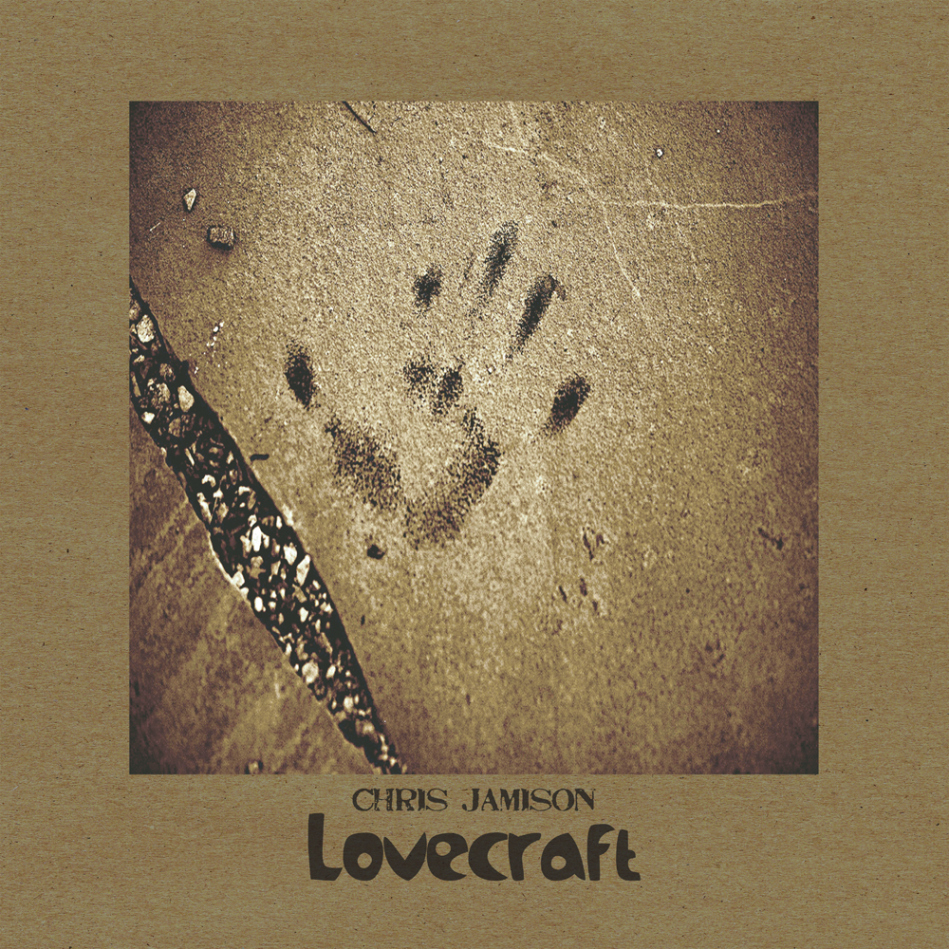I was walking home from work, playing Chris Jamison‘s new album, Lovecraft on my iPod when a man walked out of a store wearing the same cologne a friend of mine wore during my first semester of college. I can’t recall the name of the friend or what dorm I lived in, and yet I was utterly transported to the feeling of newness, trepidation, adventure and limitless possibility. So that’s my initial impression of Lovecraft — complexly layered sounds weaving through memory both recalled and borrowed, heartfelt and thoughtful, beautifully wrought and dreamy enough to linger even after the final song’s end.
Lovecraft‘s nine tracks are more lush and stylized than typical singer-songwriter fare, more laid-back than typical indie-rock. iTunes insists they’re pop, but each song is a world unto itself, with careful and joyful interplay between musicality and lyrics. There’s the way Jamison times his vocal (pushing the beat here, behind it there); there’s the way “Blue Melody” makes smart use of the steel guitar (Freddy Gildersleeve), swaying and swooning along with the lilting melody.
“Juniper Blues” knocks the dust off its cowboy boots before two-stepping slowing around an empty room. But the horns! The perfect muted horns (Steve Annibale), the shuffling snare (Dave Rentz), the slow burn of the organ (David Vincent Mills). “I told my grandpa I’d gone sober / but I don’t even think I tried / what with these ashes of roses / starting fires in my mind,” Jamison sings. On the chorus the song turns up, like a wry smile, enough to underscore the track with cozy hopefulness.
“What About Tomorrow” has the haunted swagger of an ’80s-era Charlie Sexton hit (without the big-haired ’80s baggage). But Jamison — a recent transplant to western North Carolina — was born in Texas, Sexton’s home state, and knows his way around a desperado riff and a sunbaked refrain. “Roadside Bar” is satisfyingly roadhouse-y, though more good-natured than brawl-inducing. Texan or not, there’s so much more going on here. “Pedernal,” the album’s longest offering, is languid and cool yet contains a coiled and shivery anticipation. Nocturnal tones waver and float while lucid dreams unfurl within the poetic phrases.
How Jamison recreates the experience of his album onstage is an interesting question. It’s one certainly worth exploring — his local shows are listed here. But there’s also an argument for Lovecraft remaining an album-only experience. It’s so personal, so magical. It’s the sonic equivalent of a super-8 film casting images of the past upon the screen of the present so that what was and what is unspool in unison for a precious few minutes. It’s the score of a film that doesn’t even need the visual component to be fully realized. (That said, it’s no surprise that Jamison’s Instagram account is a visual feast of saturated and evocative snapshots.)
Then again, this is a collection of songwriting gems. “Mockingbird,” with its gentle melody, soft handclaps, otherworldly harp (Molly Cook) and compelling lyrics — “Scorpions in the shadows, serpents in the moonlight / a child’s heart open, beating, pulsing with the midnight” — deserves every kind of interpretation: live, Memorex, solo-acoustic and full-band. It, like its fellow album tracks, is a song that really couldn’t be played wrong.





Before you comment
The comments section is here to provide a platform for civil dialogue on the issues we face together as a local community. Xpress is committed to offering this platform for all voices, but when the tone of the discussion gets nasty or strays off topic, we believe many people choose not to participate. Xpress editors are determined to moderate comments to ensure a constructive interchange is maintained. All comments judged not to be in keeping with the spirit of civil discourse will be removed and repeat violators will be banned. See here for our terms of service. Thank you for being part of this effort to promote respectful discussion.